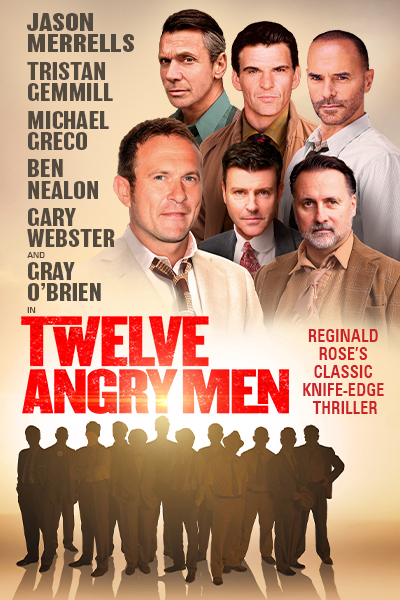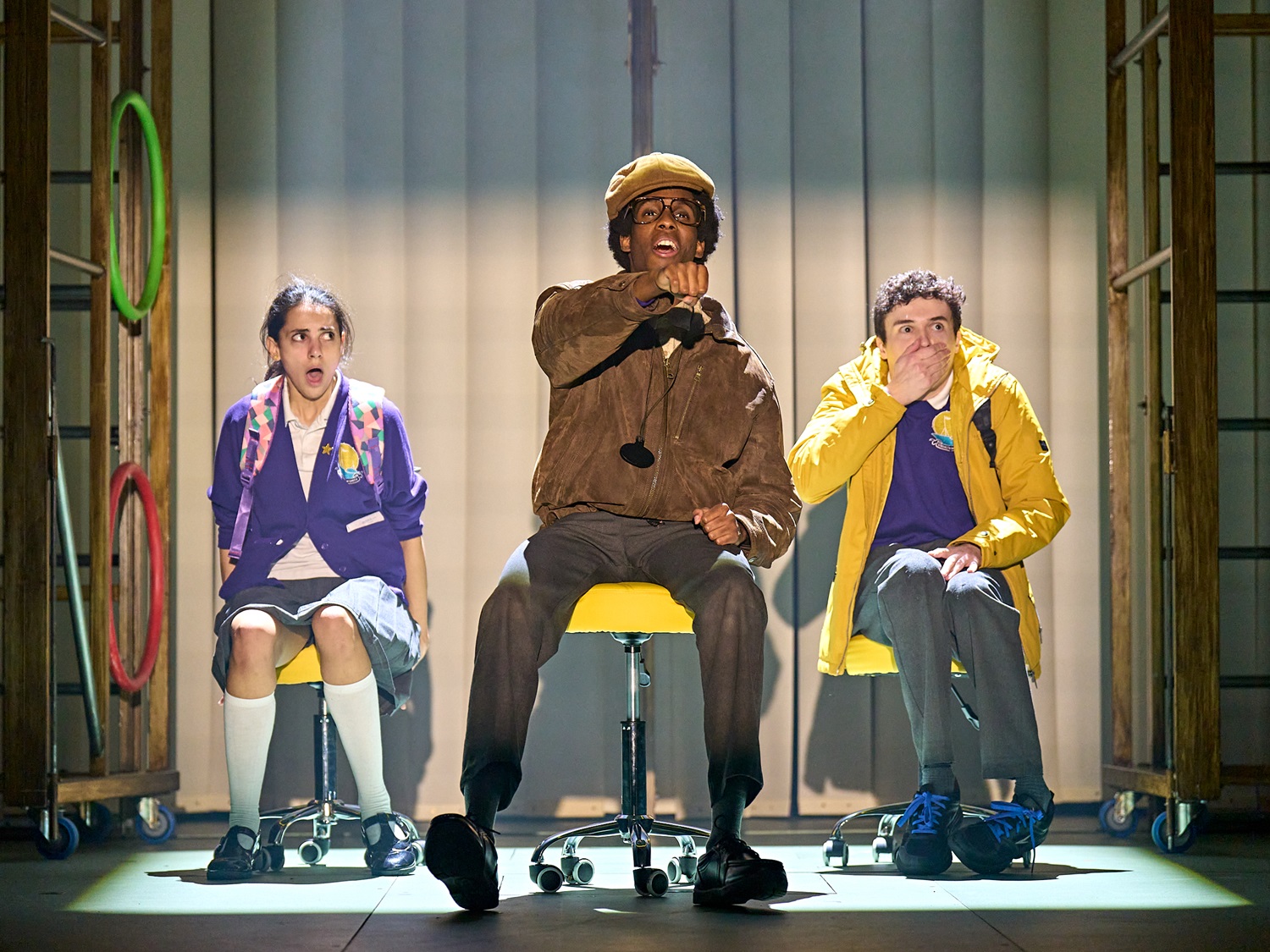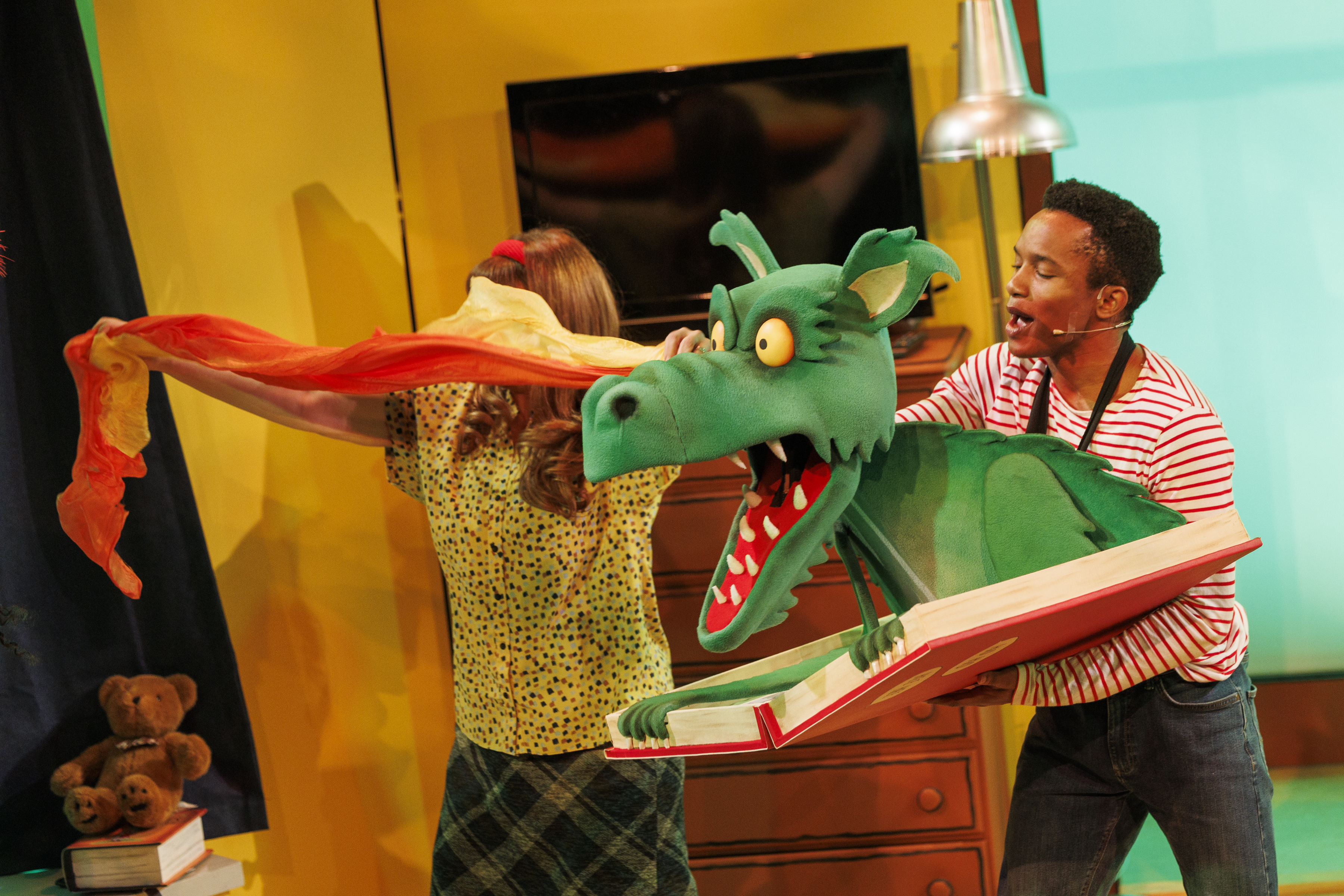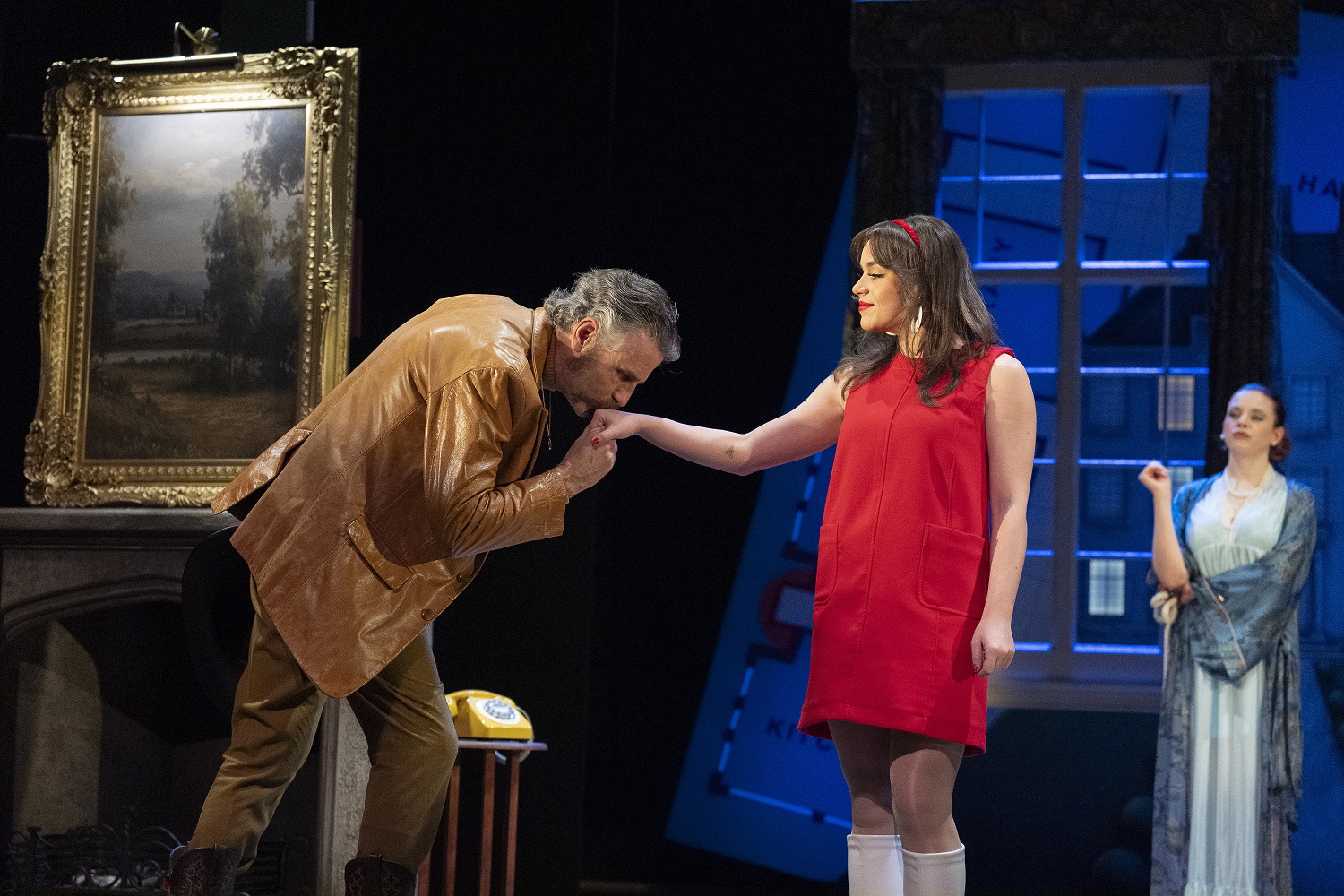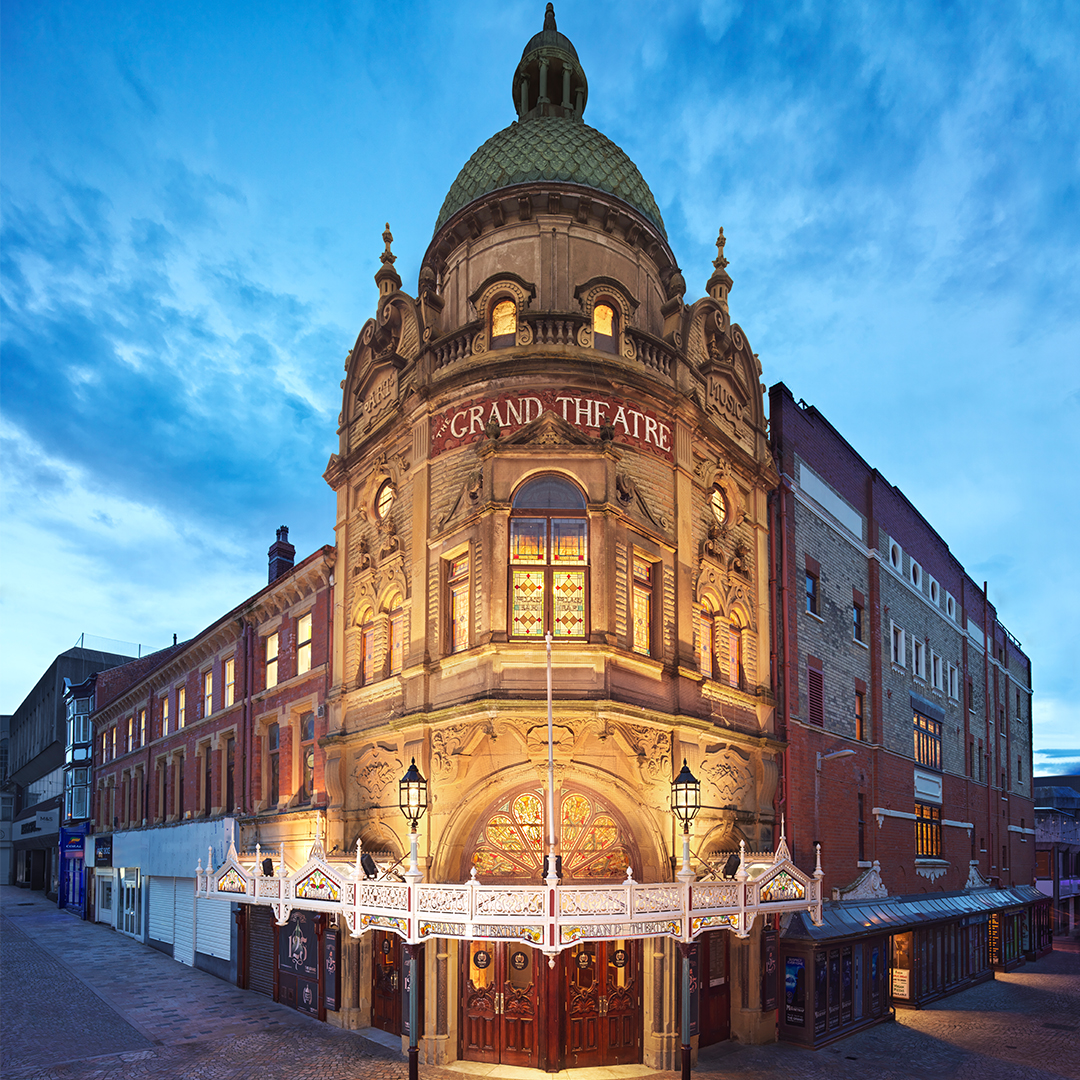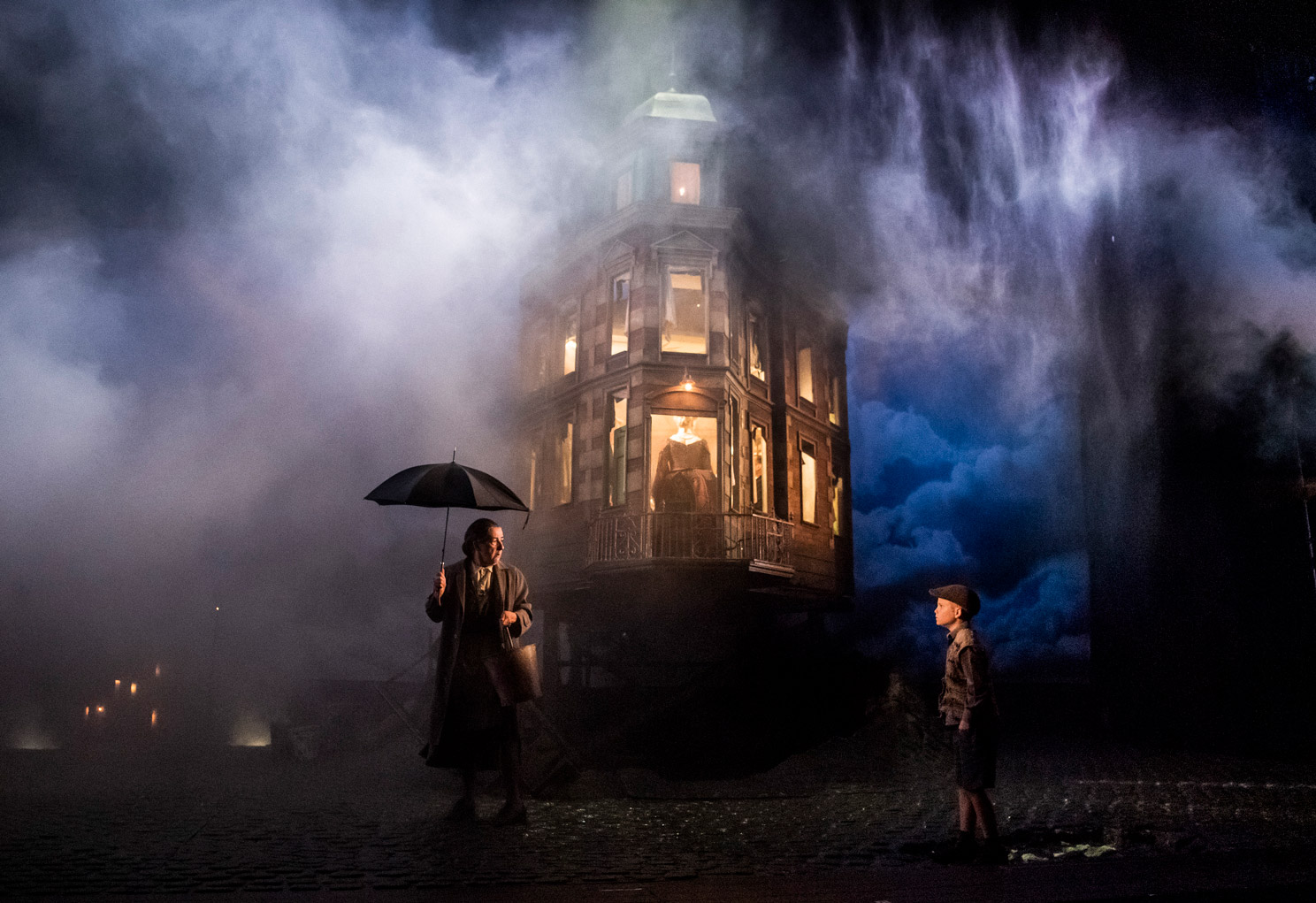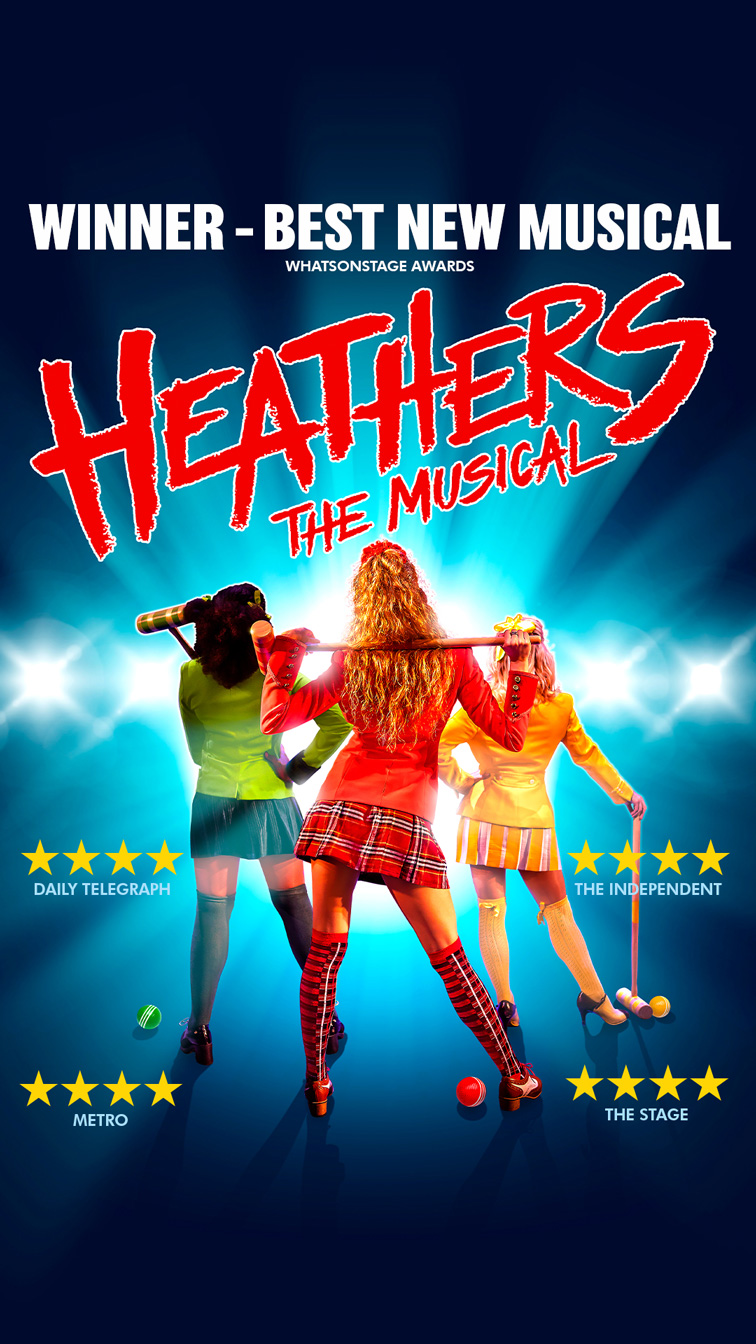
Blackpool Bardolatry And The Comedy Of Errors
7 min read
Share
Blackpool Bardolatry and the Comedy of Errors – As a member of the North-Western chapter of Shakespeare Nation, a group of people linked to Blackpool Grand Theatre and The RSC, I, along with fellow bardolators, am exploring A Comedy of Errors in anticipation of being able to attend a real-life performance at some time in the near future.
Our Zoom chats have been a highpoint of lockdown, helping us to converse with each other and to actors, writers, directors and backroom experts from the RSC and the Grand. As well as being encouraged to write and perform ourselves, most notably in delivering an amended version of Henry V’s Harfleur speech, re-jigged as “Once more unto the beach, dear friends, once more…”.
Our current focus on Comedy of Errors has been comedy, and we have already shared our early experiences of what made us laugh, chuckle, giggle, titter or even squirm. Shared anecdotes included first encounters with the likes of Les Dawson and Ken Dodd, Victoria Wood (who never performed in Blackpool) and Hilda Baker, Jimmy Clitheroe and the cast of Round The Horne, including the wonderful Kenneth Williams as Rambling Sid Rumpo. Reminiscences about this rich tradition of British comedy stretched back to Jimmy Hanley and ITMA, and included performers such as Tommy Cooper, Dave Allen, Michael Macintyre, Jennifer Saunders, Lenny Henry as well as much loved sitcoms such as One Foot In The Grave, Fawlty Towers, The Office and so many more.
This sharing of what makes us laugh has not only brought light to the dark days of the Covid Winter but informed our appreciation of what Shakespeare was up to in the very early play that we are now enjoying together. We thought it might be good to take a look at what Shakespearean comedy involves in a blog entry, so here goes….
Shakespeare Comedy: Romance, Satire and Farce
There are essentially three different types of comedy in Shakespeare: romance, satire and farce. Comedy of Errors falls into the last category while Twelfth Night, ending in marriage, would be a Romance. Satire tends to appear within plays that might be categorised otherwise so Malvolio in Twelfth Night is satirised for his hypocrisy, pomposity fand vanity for example.

The Comedy Of Errors
Comedy of Errors is recognizably a farce as it contains most if not all of the following features: highly improbable or ludicrous events, extravagant plots, exaggerated characters, confusion, misunderstandings and mistaken identity slapstick and physical humour, broad, risqué or rude jokes, deliberate absurdity or nonsense, broad performances, a single location, and a protagonist who is out of place. Even a short description of the play announces its farcical nature and the use of the situation to create humour: two sets of identical twins separated and unaware of the other pair’s existence but sharing identical names, end up in the same town. The pair who are strangers are mistaken for those who live there and vice versa. Confusion results, people are arrested, accused, distrusted and feel they are going insane. Slapstick violence ensues of course, as do a lot of rude comments and insults and frenetic situations which are finally resolved in a very unlikely fashion.
The slapstick (originally an actual stick, hinged to make a loud slapping noise as it was used to slap someone) in Comedy of Errors is clear to see in the irritation that develops between the Antipholuses and their servant Dromios. The latter complains,
“If skin were parchment, and the blows you gave were ink,
Your own handwriting would tell you what I think”!
He is resentful of the beatings he gets for offences he hasn’t committed, a recurring joke that may suggest the knockabout humour of Laurel and Hardy or the Three Stooges, although Antipholus (of E) sending for a rope’s end with which to beat his wife may sit less well with a modern audience. The arrest of the wrong Antipholus, and his Basil Fawlty/Victor Meldrew like rage at being locked out of his own house add to the violent frustration which we enjoy, knowing what he doesn’t.
Wordplay is another source of humour in Shakespeare and includes innocent if painful puns and less innocent double-entendres which would have delighted an audience of “unruly boys” and men about town. Punning is familiar from lots of other plays with Romeo and Juliet opening with several about coals and colliers and awls and alls. In Comedy of Errors we get some puns about marks (i.e. from injuries visited upon the servant) and marks (the currency he was beaten for apparently losing) and a few fart jokes pop up as Dromio, perplexed about accusations of breaking his word, plays on the expression.
A man may break a word with you, sir, and words are but wind, Ay, and break it in your face, so he break it not behind.
Double entendre is commonplace in Shakespeare too, as are willie jokes. The latter is hardly surprising given that ‘comedy’ for Aristotle, arose out of a dance around a phallus and Shakespeare certainly gets his money’s worth out alluding to the “thing, wit, tool, fiddlestick, manhood etc” and in Twelfth Night Sir Toby Belch’s instruction to Malvolio to hold his peace may be accompanied by gestures which suggest he hold his piece instead. Equally, Mercutio in Romeo and Juliet enjoys himself by teasing the Nurse whose request to know the time is met with “the hand is upon the prick of noon”, again with every chance of an accompanying action. The puns in Comedy of Errors tend more to the dad joke end of the spectrum however and become extended metaphors really as in Dromio’s likening himself to an ass who is beaten and abandoned by his master as well as to being an ass who is owned by a kitchen wench and being an idiot besides. This may remind people of the ass in Midsummer Night’s Dream of course where Oberon spitefully makes a fool of Titania and Puck makes a donkey out of Bottom.
Shakespearean insults are imaginative and inventive, conjuring up a vast variety of unpleasant images, and revealing a great deal about the cruelty, sexism and pretty bigoted attitudes around in Elizabethan England. They can also be very funny and the exchange of insults between Falstaff and Hal in Henry IV may illustrate, or as we see in the bantering that takes place between Beatrice and Benedick in Much Ado or Katherina and Petruchio in Taming of the Shrew… In Comedy of Errors, there are lots of insults to choose from, though using them in everyday speech won’t signal your sensitivity, thoughtfulness or concern for others. The table below indicates the range of insults employed and you can combine them in all sorts of unpleasant ways. The first two columns are largely adjectives and the second two are nouns.
Insults extend beyond direct abuse of course and Dromio of Syracuse’s discovery that he is supposed to have married a kitchen wench leads to a lot of vivid imagery centred upon her size. In a conversation that would make even Roy Chubby Brown blush, he describes this “wondrous fat marriage” to a woman who is “the kitchen wench and all grease”, In fact, she has so much grease and fat that he could make a lamp of her “that would burn a Poland winter”. He also describes the unseen woman (Nell) as “no longer from head to foot than from hip to hip” and as “spherical like a globe”. He then enjoys himself with this metaphor by discussing, with his master, where various countries might sit on this globe, managing to mix xenophobic anti-Irishness with a lot of coarse humour by suggesting that Ireland was situated in her buttocks and “I found it out by the bogs”. England’s white cliffs sit around her whiskered chin and Spain, France, the Americas and the Netherlands are all assigned to areas of this body politic.
We are looking forward to actually seeing a live production but in the meantime, we are enjoying speaking the lines and exploring the complicated plot and some interesting interactions with the characters. Thanks to some expert help, our understanding and appreciation have increased immeasurably and we have been able to find humour in the dark times and hope in the coming spring and the “daffodils, that come before the swallow dares, and take the winds of March with beauty.”
| choleric | horn-mad | ass | knave |
| shrewish | dark-working | fool | villain |
| unruly | tardy | gnat | juggler |
| soul-killing | spherical | drone | slave |
| peevish | drunken | snail | sorcerer |
| stark-mad | deformed | slug | minion |
| crooked | old | sot | baggage |
| sere | Ill-faced | drudge | diviner |
| shapeless | vicious | witch | madman |
| ungentle | foolish | sheep | devil |
| blunt | unkind | fiend | fury |
| stigmatical | pitiless | wolf | back-friend |
| rough | evil | shoulder-clapper | hound |
| lunatic | senseless | thief | capon |
| whoreson | fiery | Devil’s dam | peacock |
| sharp | doting | wizard | harlot |
| dissembling | wretched | gaoler | strumpet |
| distracted | sour | wretch | peasant |
| threadbare | hollow-eyed | anatomy | mountebank |
| pernicious | dead-looking | confederate | drunkard |
| needy | hungry | coxcomb | patch |

William Shakespeare
William Shakespeare (bapt. 26 April 1564 – 23 April 1616) was an English playwright, poet, and actor, widely regarded as the greatest writer in the English language and the world’s greatest dramatist. He is often called England’s national poet and the “Bard of Avon” (or simply “the Bard”). His extant works, including collaborations, consist of some 39 plays, 154 sonnets, three long narrative poems, and a few other verses, some of the uncertain authorship. His plays have been translated into every major living language and are performed more often than those of any other playwright. They also continue to be studied and reinterpreted.

